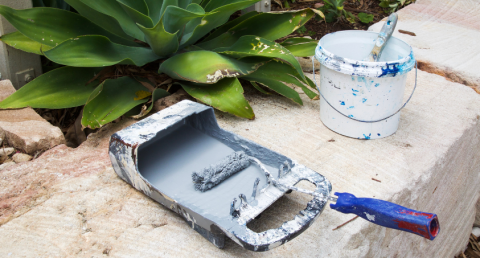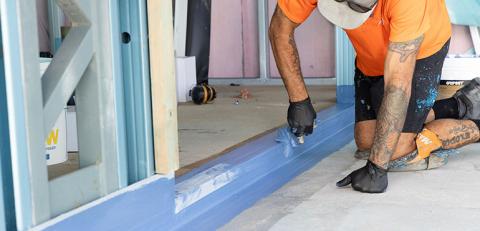
Role and responsibilities of a certifier
Licensed building certifiers assess building applications, decide whether to issue building approvals and inspect and certify building works. The certifier ensures the building works comply with the building assessment provisions, the Building Act and the approval. Certifiers can work for local government or in private practice.
Integrity of certifiers
There is a high level of accountability in your position as a certifier so it is important that you avoid situations that may cause a conflict of interest. Building certifiers must act in the public interest when performing building certifying functions.
Examples of building certifiers not acting in the public interest may include (but not limited to):
- seeking or accepting a benefit to themselves or others for acting against their statutory functions
- acting against their statutory functions
- falsely claiming to hold the appropriate licence needed to carry out building assessments of a particular type
- acting outside the scope of their legislated powers
- breaching the Code of conduct for building certifiers (PDF)
- acting in a grossly negligent or incompetent way.
A certifier's conduct can be reported to the QBCC.
Responsibilities
Building certifiers do
- carry out building assessment work relating to new, altered and existing building work
- give a Compliance Certificate stating building work complies with the building assessment provisions
- under a Building Development Approval, inspect the building work to decide whether to certify the work, including mandatory stages for class 1a single-detached buildings - as defined under section 44 of the Building Regulation
- may ask for any designs, inspections, certificates & documentation to determine the building work is compliant with the NCC and relevant planning laws and legislation
- give a certificate for a stage of the building work
- issue enforcement notices where required
- give a final inspection certificate for the final stage of building work for Class 1 and 10 buildings/structures and/or a certificate of occupancy for a building or structure of another class.
Building certifiers don't
- design the building or structure or carry out any of the building work
- ensure a builder is complying with their contract
- take responsibility for quality control and material finishes (e.g., quality of paintwork or finishes on a project, wrong coloured timber treads)
- supervise the job site
- enforce Workplace Health and Safety measures for building sites that is under the governance of the Workplace Health and Safety Act
- meet the cost of referral agency assessment and inspection fees (e.g., QFES, local government etc)
- ensure a subcontractor is complying with their contract with the owner.
Appointing a private certifier
In most cases, your builder will be responsible for engaging the private certifier on your behalf. However, you can directly appoint a private certifier. You should have documented in your contract who wil be the person responsible for engaging the certifier.
Regardless of who engaged the private certifier, owner clients and other clients must be aware of the certifier's engagement, role and responsibilities, including if:
- the person engaging the certifier (the client) is not the owner – the client must give the private certifier the name and contact details of the owner within 10 business days after their engagement starts
- the private certifier must give the owner their contact details and details of their responsibilities in the approved Form 18—notice to the owner that a private certifier has been engaged (PDF, 191KB) within 15 days of their engagement
- the person engaging the certifier (the client) is not the owner, and the owner changes their name or contact details—the client must give the private certifier notice of the change within 5 business days after becoming aware of the change.
Obtaining certification documents
If you are the property owner, you can obtain inspection documents relating to the stages of work before the final stage using a Form 35—owner request for a copy of inspection documentation (PDF, 169KB)
The building certifier is obligated to provide the requested inspection documentation to you within 5 business days. A penalty of up to 20 penalty units ($2,669 as at 1 October 2020) may apply if the building certifier does not comply.
The certifier will provide the final stage documents to you. You don't need to request them. The process and types of documents depend on the class of the building.
The owner of a class 1a dwelling (or associated class 10 structure) will be given the final inspection certificate, plus a copy of any other inspection documentation.
The building certifier is responsible for ensuring these documents are given to you within 5 business days. Failing to do so may result in a penalty of up to 40 penalty units.
Owners of other types of buildings will be given a certificate of occupancy.
The certifier must ensure you receive the certificate of occupancy as soon as practicable, once the building is eligible for the certificate. A penalty of up to 20 penalty units may apply if the building certifier does not do so.
As a building owner, you can request a certifier to perform inspections and other certifying functions additional to the standard stage inspections required under the building development approval.
These requests can be made using Form 31—additional certification notice (PDF, 183KB) and giving it to the person (client) that engaged the certifier.
The additional certification notice needs to provide details of the certifying function the owner requests the certifier to perform.
Only building certifying functions relating to compliance of a building with the Building Code of Australia (BCA) or the Queensland Development Code (QDC) can be requested.
- You must make the request within 10 business days of being advised of the certifier's name and details of their engagement.
- Your request must be passed onto the certifier within 5 business days.
- After receiving the notice, the building certifier must perform the inspection stated in the notice on or before the agreed day, unless the certifier has a reasonable excuse. The day is agreed upon by the owner, client, builder and certifier.
As the building owner, you must pay the reasonable costs for the additional functions requested.
Notification of a missed inspection
It is the responsibility of the builder to let the certifier know when the project is at a stage requiring an inspection.
Certifiers must let the QBCC know if they did not receive a notice for inspection from the builder. This can be done by completing the form:
Notification of missed inspection (PDF, 33KB)
Lodge it with us:
- by mail
- in person at a service centre
- on myQBCC via our feedback and enquiries form (Note: you must be logged in to upload a form).
Undertake continuing professional development
Keeping up to date with the latest building practices and legislation is an important part of your role. Continuing professional development requirements assist in maintaining your accreditation to meet licensing requirements.
Some of the areas where you may need to continue to increase your knowledge include:
- technical building practices and related engineering, design and construction practices
- building related law and the implications of those laws
- building codes and standards
- risk assessment and management principles relevant to the design and construction of buildings
- professional and ethical responsibilities and obligations
- effective communication techniques with designers, builders, building owners and the general community.
The QBCC's role in certification
- Certifier licensing.
- Investigating complaints against certifiers.
- Keeping a register of certifiers.
- Auditing certifiers' work.
- Demerit points for certifier offences
Certifier misconduct
Building certifiers must act in the public interest. Examples of certifiers not doing this include:
- seeking or accepting a benefit to themselves or others for acting against their statutory functions
- acting against their statutory functions
- falsely claiming to hold the appropriate licence needed to carry out building assessments of a particular type
- acting outside the scope of their legislated powers
- breaching the Code of conduct for building certifiers (PDF)
- acting in a grossly negligent or incompetent way.
A certifier's conduct can be reported to the QBCC.
Apply for a certifier licence
Check eligibility requirements and apply for a certifier licence.





